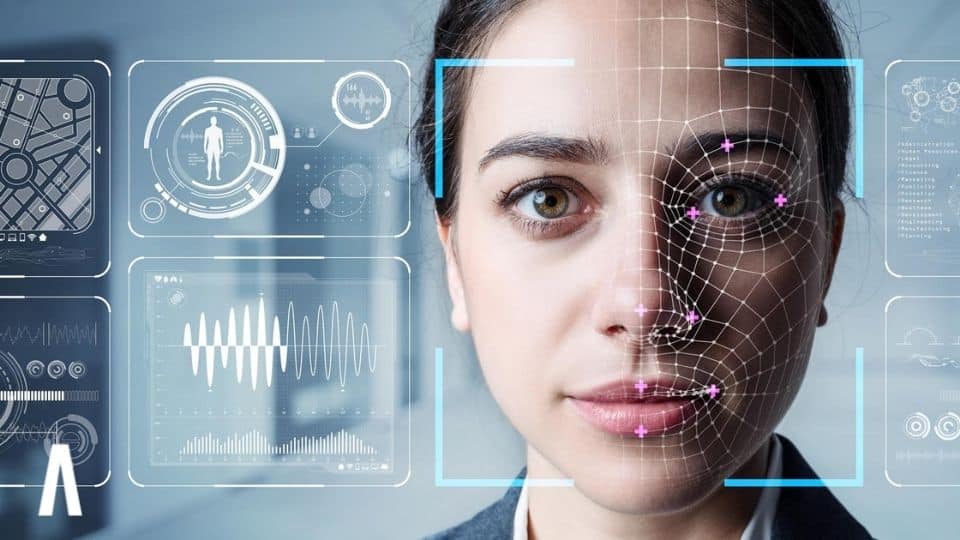How AI is revolutionizing Drug Discovery
Blog | June 21 2022 | Alldus Recruitment
The average cost of developing a new drug is estimated to be around $1.3 billion, with only 10% of potential treatments making it to market after Phase I clinical trials. The process is also heavily labor-intensive and complex, with most drugs taking 12 years to go from the laboratory into circulation.
Researchers are under increasing pressure to develop effective treatments faster, as most recently evidenced by the race to develop a vaccine for Covid-19 in the past couple of years. A deluge of data from scientific papers, clinical trial notes and drug patents has given researchers access to more information than ever, with traditional methods struggling to keep up.
The increased digitization of the pharmaceutical sector has led to an uptake in the use of Artificial Intelligence tools based on their ability to handle large unstructured data sets and enhance automation, something many researchers hope will revolutionize the drug discovery process.
The Drug Discovery Process
When assessing the impact of AI, it is important to first give a brief overview of the drug discovery process and some of the associated biochemistry nomenclature.
Some common terms associated with the drug discovery process (a comprehensive Glossary of terms can be found here)
- Target – A molecule associated with a disease in the human body. A target is the intended destination of a treatment (this is typically a protein).
- Binding – The degree to which a medication/compound will attach to a target protein
- Compound/Lead – A chemical that binds to the target in a way that will alter or treat a disease.
The first step in the drug discovery process is “target identification”. A target typically refers to a protein in the body that is associated with, or causes, a disease. The challenge lies in identifying which proteins are relevant and confirming their role in a disease. Understanding protein pathways and how they interact helps to identify the most appropriate target for a drug.
Methods like high-throughput screening are employed to find chemical compounds that bind to a target in a way that alters a disease (a Hit), the compound is then refined through an iterative process to improve its safety (Hit-to-Lead), ultimately becoming a drug candidate.
Not surprisingly this process takes time. Most oncology drugs take approximately 15 years to develop, with patients missing out on potentially life-saving treatments. The ultimate goal of the application of AI in drug discovery is to expedite this process, reduce costs and provide patients with better treatments faster.
AI in Drug Discovery
AI is increasingly being leveraged at all stages of the drug discovery process, from the application of NLP techniques to identify patterns hidden away in volumes research data, to the development of new compounds in silico, predicting their binding affinity with targets via computer simulation.
Here we will take a look at just some areas of the drug discovery process being revolutionized by AI, giving researchers a much needed head-start when developing treatments.
Protein Folding Problem
From food digestion to muscle contraction, proteins carry out the majority of essential functions in the human body, with each protein having a unique 3-dimensional structure that enables it to carry out its specific biological function. Known as the “protein folding problem”, understanding how a proteins amino acid sequence dictates its shape is a vital part of the drug discovery process, typically taking months if not longer.
One of the most exciting breakthroughs in AI research has been its application in solving this problem by drastically speeding up the rate at which treatments can be developed. AlphaFold (developed by DeepMind) is an AI system that has been trained on the sequences of around 100,000 proteins, mapped out by scientists across the globe. The system leverages deep learning techniques to predict the shape of a protein based on these sequences.
The AlphaFold system is able predict structures with startling accuracy, on par with gold standard methods such as X-ray crystallography, a more time-consuming and expensive technique. Describing what this breakthrough means for drug discovery, Evolutionary Biologist Andrei Lupas stated:
“This will change medicine. It will change research. It will change bioengineering. It will change everything.”
It is hoped that the deep learning techniques used by AlphaFold will finally enlighten researchers on the function of the thousands of unsolved proteins in the human body, giving a greater understanding of disease-causing genetics, resulting in viable treatment options.

Target Identification
The protein folding problem is just one example of the potential application of AI in drug discovery. As discussed, target identification is the crucial first step in developing a new treatment. A time-consuming process, this often involves conducting an extensive review of medical literature on a disease, or comparing the genes of healthy individuals to those with a disease, and developing hypotheses (a process usually taking 2 to 6 months).
As part of our AI in Action podcast series, we were joined by Jason Kim and Jenny Zhang from Immuneering, who discussed how the work they are doing is speeding up this process. Immuneering’s disease cancelling platform draws from over 10 years of experience working with pharmaceutical companies, allowing for data-driven target discovery using gene expression data and neural networks.
Jason gave us some further insight into the platform and where it is adding value:
“Fluency (the platform) is a deep learning model that essentially learns to predict the binding affinity between small molecules and proteins, having been trained on vast amounts of curated data. It can screen over 10 million compounds for a target in a matter of hours, pointing researchers in the right direction to know which molecules to test. This would normally take months to years, and a lot of money to do experimentally, and it’s probably not even feasible to screen that number of compounds (without AI tools)”
The ability of AI platforms like Fluency points researchers in the right direction and giving them a head-start in the crucial target identification stage is expected to speed up the drug discovery process exponentially.
Drug Repurposing
Greater understanding of the human body has led to a paradigm shift in disease research. Rather than being viewed as isolated, standalone conditions, a more holistic approach involving the entire body has been adopted, leading to a rise in drug repurposing research.
It is estimated that only a third of known diseases have an adequate treatment option, despite the existence of tens of thousands of drugs targeting a variety of conditions. AI and genomic data are increasingly being utilized to identify existing treatments that can be applied to different diseases to great effect. One company at the forefront of this area of drug discovery is BenevolentAI, who we previously hosted on our AI in Action series.
BenevolentAI’s platform is fed data from a variety of disparate sources, including clinical trial notes, scientific research papers and drug patents. From there it forms a cloud-based representation of over a billion known relationships between biological entities; including proteins, diseases and symptoms. The system can then be queried in the same way as a search engine, producing knowledge graphs on specific medical conditions and associated genes, even suggesting potential drug candidates.
The platform was put to use in 2017 to identify existing treatments that could be applied to Motor Neuron Disease (MND). After flagging over 100 existing compounds that showed promise, five underwent additional testing with one being shown to delay the symptoms of MND in mice.
Another high-profile success for the business came in February 2020, when the platform was employed to find existing drugs that could be repurposed to stop the progression of Covid-19 at the peak of the pandemic. 90 minutes after being fed with everything that was known about the virus, BenevolentAI’s platform identified baricitinib as potentially having the desired properties to slow the spread of the virus. By March the treatment was being trialed on patients.
To put this achievement into context it took 43 years to develop a vaccine for Ebola, and we are still awaiting viable treatment options for MERS and SARS in 2021. The use of BenevolentAI’s technology in contrast, was able to offer potential treatments in under 2 hours of computing time.
Conclusion
From target identification to drug repurposing, Artificial Intelligence is being leveraged at all stages of drug discovery, with the above examples representing just a fraction of its potential applications.
With a host of new startups forming each year, and the AI in drug discovery market expected to reach $3.5 billion by 2027, it is highly likely we will continue to see further breakthroughs in the coming years.
Alix Lacoste perhaps best summed up the prospects for the future when she appeared on our AI in Action podcast:
“We’re particularly looking at the areas where Pharma has given up potentially, because traditional approaches to drug discovery are too expensive. I think we really have a chance to critically disrupt that, so that’s really my main motivation and what I love about this job”
An exciting prospect for the future of drug discovery.
If you’re interested in exploring our latest Data Science & ML jobs within the Healthcare sector, check out our live vacancies or upload your resume today to keep up to date with all the latest opportunities.
share
related articles
Women in AI: Bridging the Gap
Despite huge advancements in AI research, the field still lags in another key area of societal progress, gender equality. With women accounting for just 22% of professionals in the field, we examine the steps needed to address this inequality and how it would also benefit the technologies themselves
Why SQL is the base knowledge for data science
As a programming language, It's a simple skill to learn, but a very valuable one. A walk in the park compared to Python or R.
Why NLP is the future of E-Commerce
There are great benefits to using NLP in eCommerce. The world of business would be greatly benefited from in-depth insights that are controlled by AI. It will help in increasing customer satisfaction rates, improve the revenue curve & ultimately transform the future of business operations.




